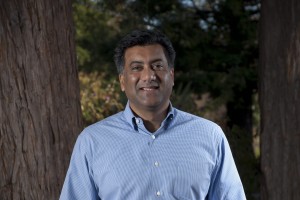Jun 27
2013
Telemedicine: Video Consultation Lowers Response Times, Saves Costs and Keeps Patients Onsite for Gerald Champion Regional Medical Center
Guest post by Sreekanth Ravi, founder and CEO, Tely Labs.

Once largely restricted to the largest urban hospitals, telehealth is gradually expanding beyond its city confines. According to estimates from the American Telemedicine Association, about 10 million people a year now receive some form of telemedicine service. Fueled by multiple converging dynamics — including rising consumer demand as people live longer, breakthroughs in medical science, the requirements of the Affordable Care Act, and recent technological advances that make remote and online healthcare more feasible and affordable – rural and remote hospitals are likely to be the chief adopters.
Gerald Champion Regional Medical Center in Alamogordo, New Mexico, is a case in point. Because they don’t have neurologists on staff, until recently they had to transfer stroke patients to El Paso or Las Cruces. Now, patients in need of neurologist care are far less likely to be transferred from Alamogordo.
Since September 2012, the hospital has been using a telehealth service provided by Net Medical Xpress Solutions of Albuquerque. Doctors and nurses at Gerald Champion’s emergency room and intensive care unit now have immediate, direct access to Net Medical’s 24-hour, on-call specialists via videoconferencing and online imaging for consultation and diagnosis.
“The specialist appears on the video screen in the patient’s room and does an entire neurological assessment, either with the ER doctor or the nurse or both at the bedside,” said Jean Jaszai, Gerald Champion’s director of nursing at the ER. “The high-resolution camera lets the doctor pan in on the patient, enough to see the pupils of the eyes. The specialist then provides a complete report that’s immediately available online as part of the patient’s medical records.”
Net Medical Xpress is one of the leaders in the field of telehealth services, managing a national network of more than 90 radiologists, cardiologists and other specialists who review, consult and diagnose more than 400,000 examinations for nearly 16,000 medical establishments. Their technology includes real time communications to instantaneously share documents and images, videoconferencing to provide virtual consultation with remote specialists and doctors or nursing staff, plus high-resolution cameras with 360-degree views.
At Gerald Champion, close to 50 patients have been examined by the Net Medical neurology team since the system was introduced and no stroke patients have had to undergo the discomfort of transfer. The hospital’s CEO Jim Heckert said, “The system has helped us offer better care at the time it’s needed.”
Net Medical’s XR Express PACS software system allows virtual patient examination, interaction with medical staff, the secure and immediate exchange of medical information including CT scans, MRIs and other tests, between healthcare facilities and Net Medical’s team of more than 90 specialist consultants.
Adding Video to the Telemedicine Mix
When Tely Labs launched its new videoconferencing technology Net Medical Xpress seized the opportunity to add video consultation to their telemedicine services. Now they are able to securely interact with the patient and attending physicians and nurses from the hospital room.
“The telyMed solution is the first video calling solution that makes it simple, secure and affordable for healthcare organizations to connect to remote medical teams for potentially lifesaving interactions,” said Dick Govatski, CEO of Net Medical Xpress. “If hospitals can quickly gain access to expert diagnosis, take immediate remedial action, and not disrupt patients’ lives by transferring them to facilities far away from home, it’s a winning formula.”
telyMedfrom Tely Labs is an easily-used platform consisting of a compact appliance that is used in conjunction with an HDTV. Net Medical Xpress has integrated telyMed into it via the telyMed system, medical practitioners in the hospital can connect to Net Medical Xpress’ remote specialists using any Skype-enabled device or even high-end videoconferencing systems that use the industry standard SIP protocol.
Saving Lives, Saving Costs
Since incorporating telyMed videoconferencing into its system, Net Medical Xpress has helped the hospitals it serves to avoid transferring patients to other healthcare facilities in 106 out of 114 video consult cases: a 93 percent success rate. These include four instances of administering the clot-busting drug tPA (tissue plasminogen activator) – which can be fatal if not correctly prescribed – to stroke patients following video diagnoses. To date, client hospitals have generated retained patient revenues of more than ten times the costs of the Net Medical Xpress service.
Video consultation makes enormous financial, as well as medical sense for remote and rural hospitals, since it avoids the expense of transporting patients by ambulance or helicopter to distant urban centers and helps rural hospitals boost their earnings by retaining fees as a result of treating more patients in-house. In addition, it improves the confidence and comfort of patients and their families by enabling more rapid intervention without the need for disruptive travel, and delivers better outcomes.
“For the hospitals and clinics we serve, telyMed has helped lower medical specialist response times to as little as 10 minutes,” says Dr. David McCraney, chief neurologist at Net Medical Xpress. “Without Net Medical and telyMed, it’s safe to say hundreds of patients in the past year would have been denied access to potentially lifesaving medication. These patients received treatment because we offer a solution that hospitals can afford and it works.”
Sreekanth Ravi, founder and CEO, Tely Labs, is a serial entrepreneur. Sreekanth has a history of creating and building large successful corporations. Prior to founding Tely Labs, Sreekanth was co-founder, CEO, and chairman of Code Green Networks, a leader in the field of corporate data-loss prevention. Sreekanth is also the co-founder and retired CEO of SonicWALL (NASDAQ: SNWL), where he led the company through a successful IPO in 1999. Sreekanth holds a Bachelor of Science degree in Electrical Engineering from the University of Illinois.